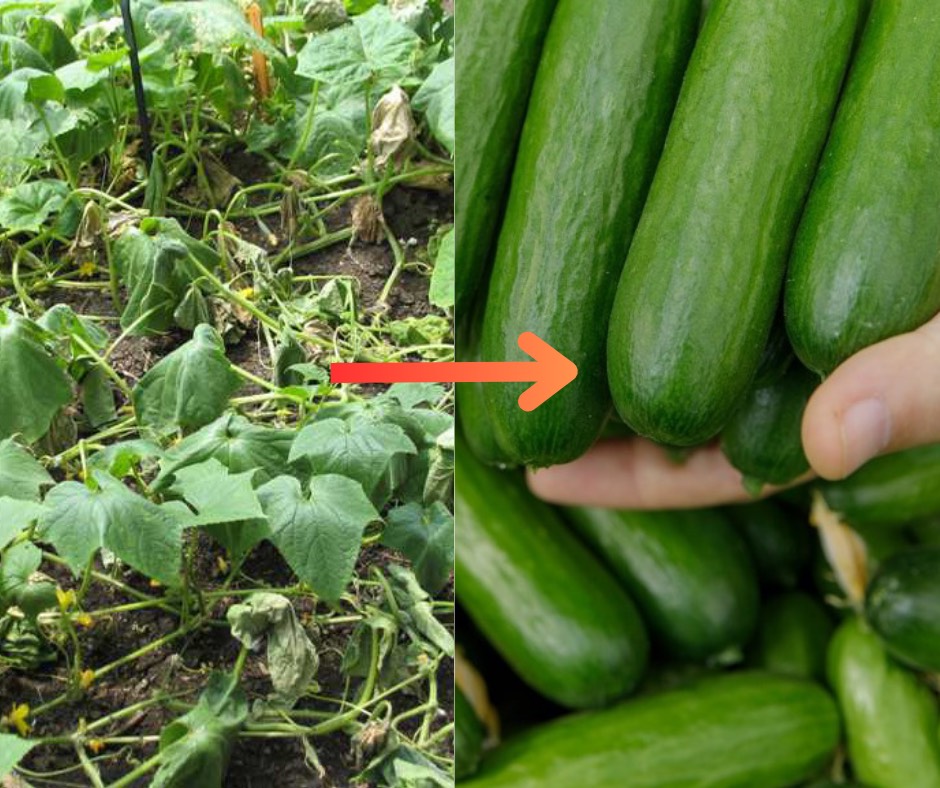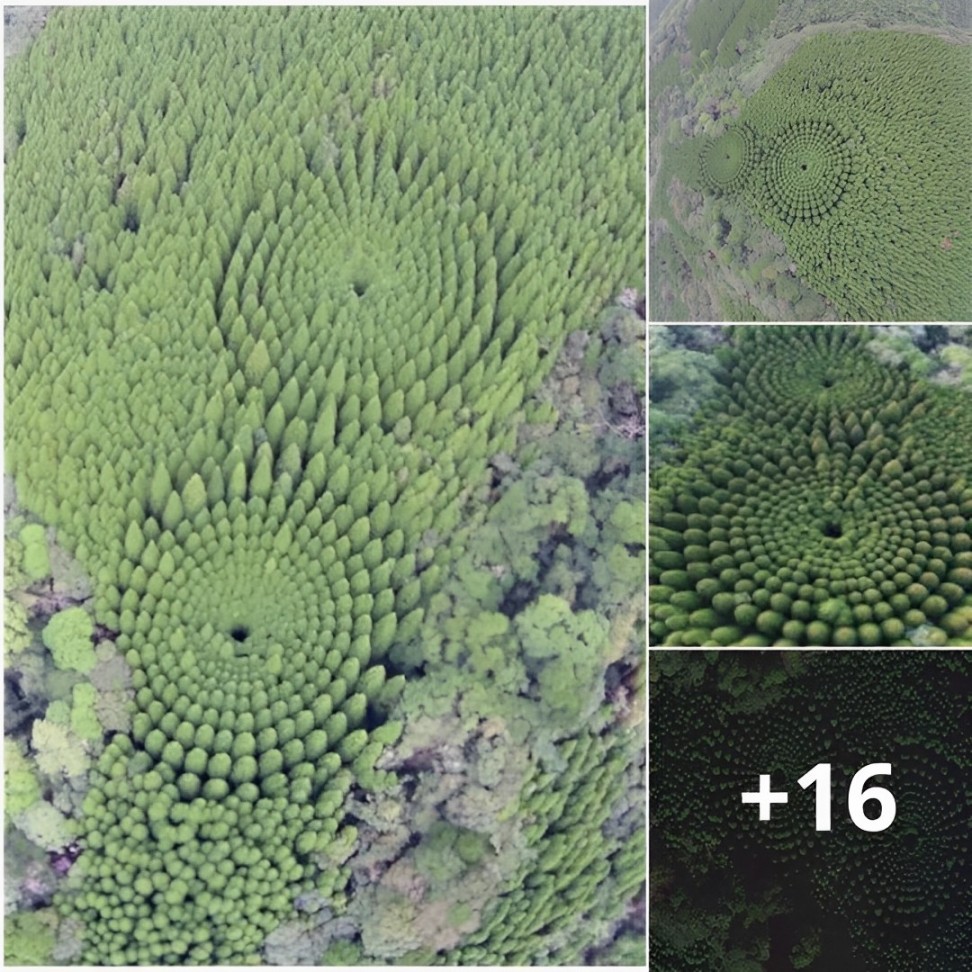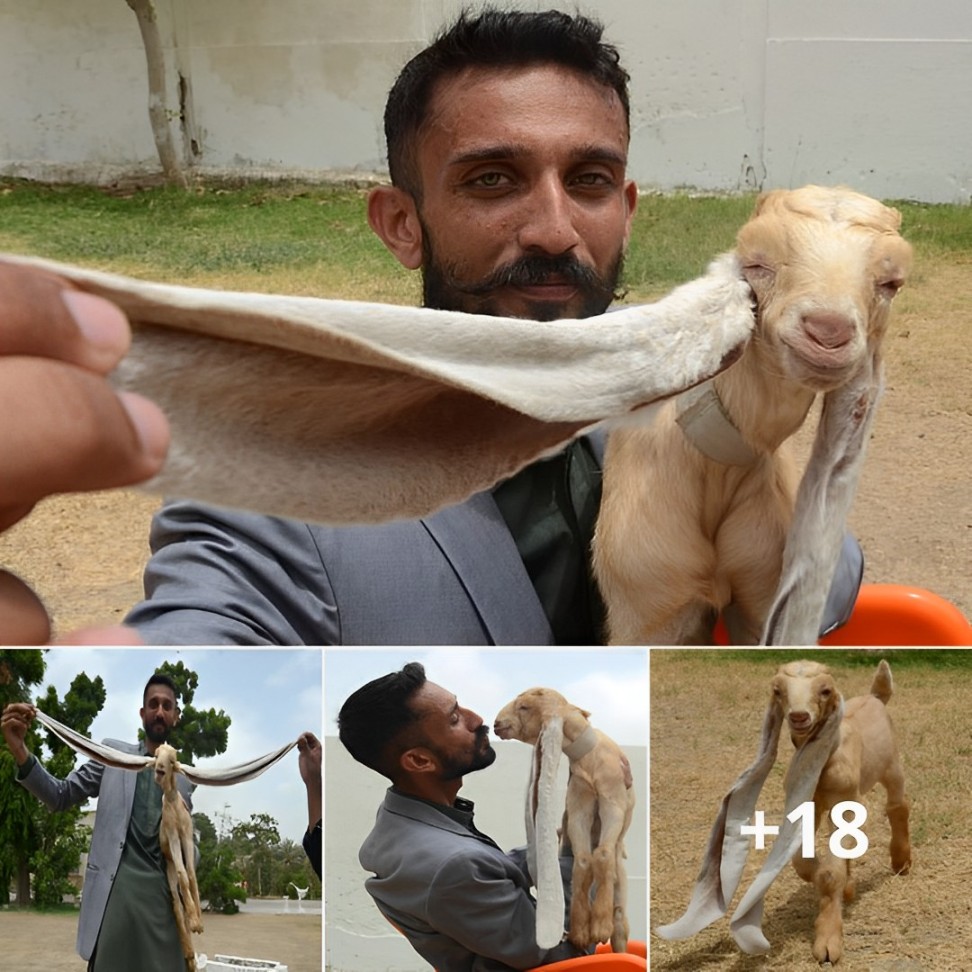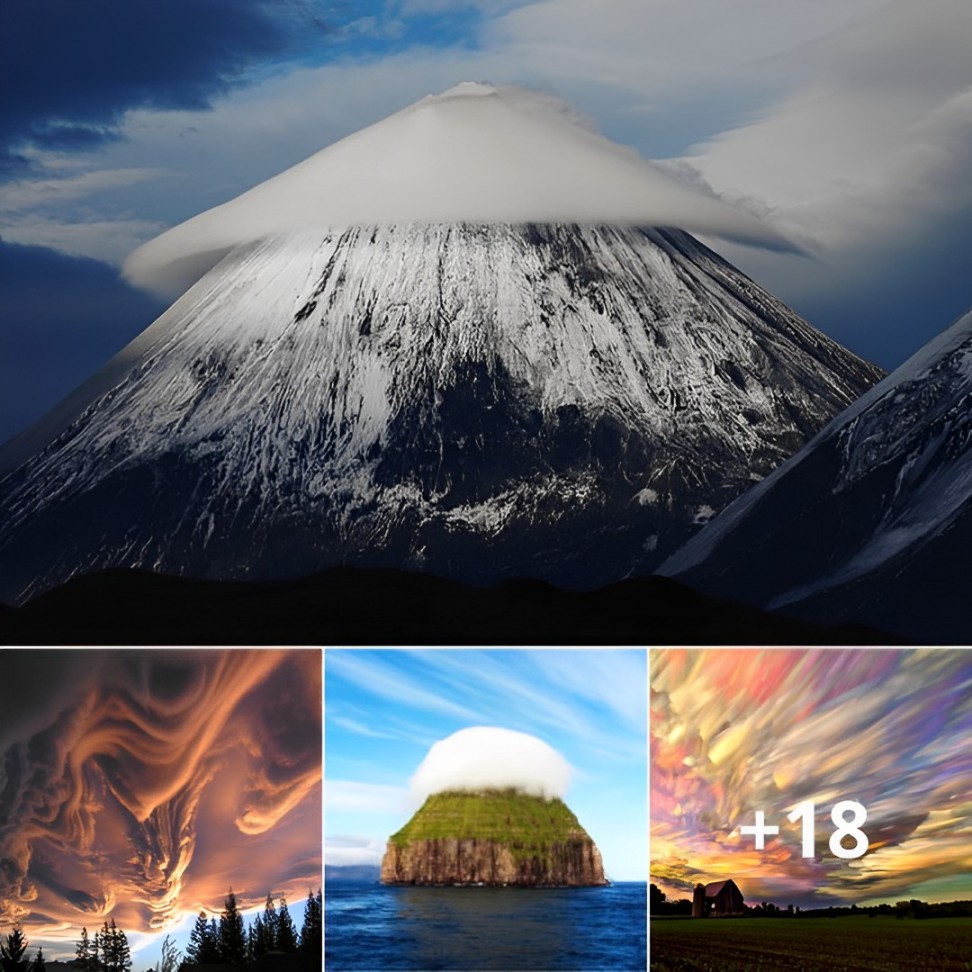A 70-year-old giant tortoise in ‘peak physical condition’ has fathered a whopping eight baby Giant Galapagos tortoises.
Dirk, named after porn star Dirk Diggler from Boogie Nights, mated with three females he shares a pen with in Crocodiles of the World in Oxfordshire.
In March it was revealed that two baby tortoises had hatched from eggs laid by 21-year-old female Charlie.
That was the first time a British zoo had successfully bred a Giant Galapagos tortoise. After that Dirk mated with female tortoise Isabella who laid four eggs which hatched in July.
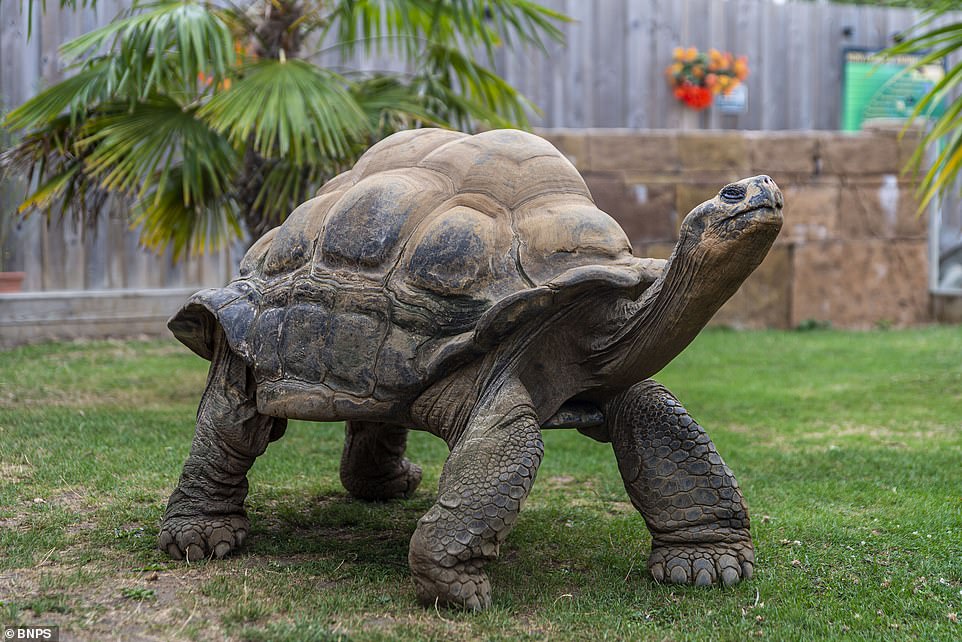
Dirk, named after porn star Dirk Diggler from Boogie Nights, mated with three females he shares a pen with in Crocodiles of the World in Oxfordshire
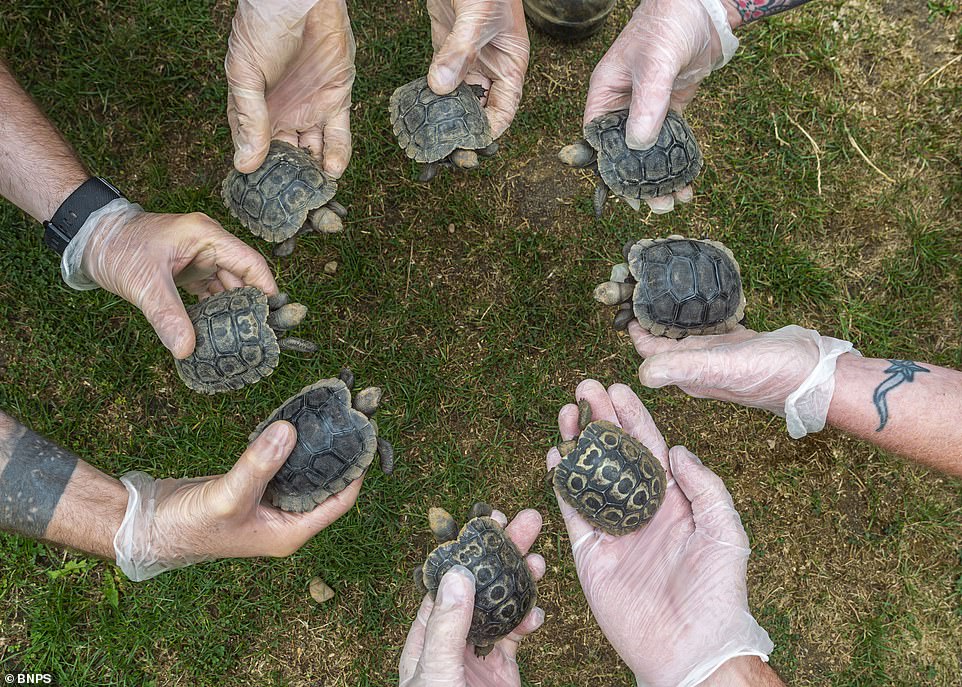
The arrival of the eight babies at Crocodiles of the World in Brize Norton is a huge boost to the conservation status of the giant Galapogos tortoise which is an endangered species
Charlie then laid two more eggs fertilised by Dirk, who is said to be in peak physical condition, and these have recently hatched.
The arrival of the eight babies at Crocodiles of the World in Brize Norton is a huge boost to the conservation status of the giant Galapogos tortoise which is an endangered species.
There are now about 15,000 individuals left in the world compared to 200,000 in the 19th century.
Shaun Foggett, founder and director at Crocodiles of the World, said: ‘The first two hatchlings were Charlie’s back in March, then we hatched four from Isabella in July, and we’ve just had another two from Charlie’s eggs.
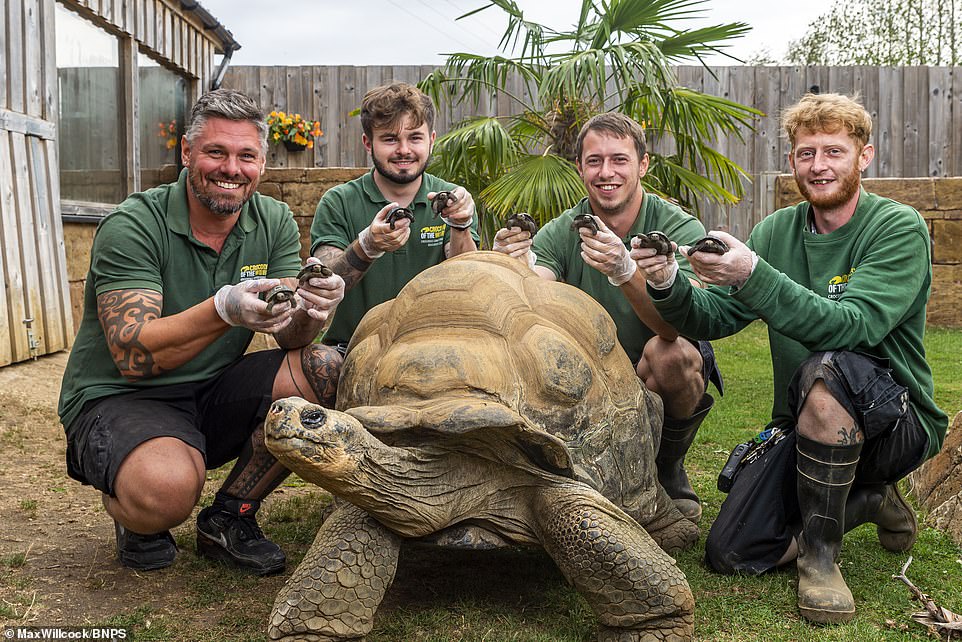
There are now about 15,000 individuals left in the world compared to 200,000 in the 19th century
‘There has been nothing from Zuzu yet, but they have only started laying eggs in the last 18 months.
‘We’re fairly sure they are all female, but this is not confirmed yet.
‘In order to monitor their growth and general well-being the babies are kept separate to the adult tortoises.
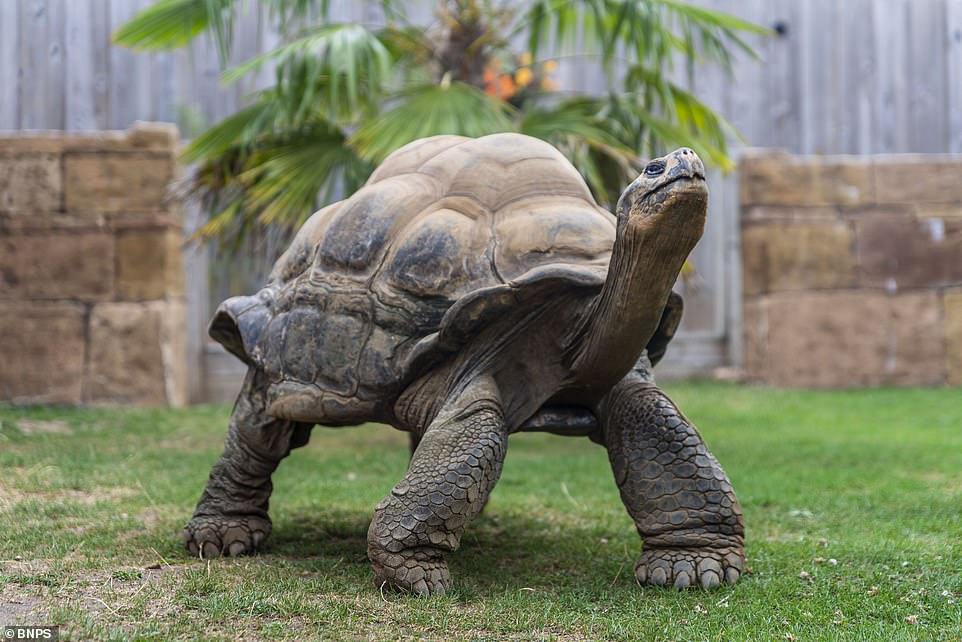
‘It is a big deal in that for a decade or more, just one collection of giant Galapagos tortoises in Europe were able to breed the species.
‘It certainly shows that Dirk is a potentially very important tortoise within European zoos.
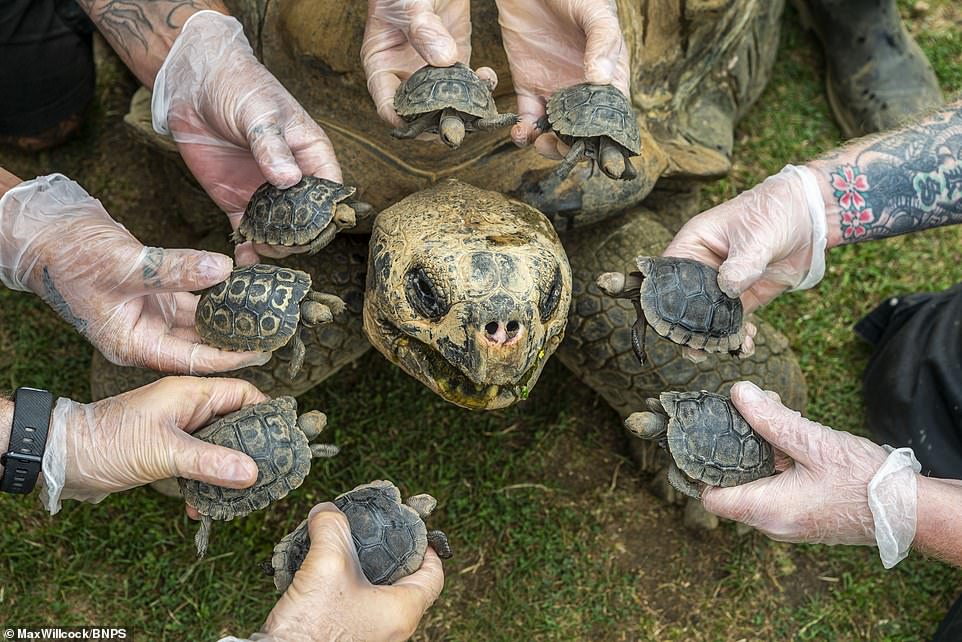
Giant Galapagos tortoises are famous for their long necks and are synonymous with Charles Darwin who discovered the theory of evolution by studying them
‘The biggest boost right now is the fact that the knowledge we are able to gain and share from the incubation of the eggs to the raising of the young.
‘This will provide more experience and knowledge on the whole process of breeding the species in a zoo setting.
‘The timings of mating, breeding, behaviour of the adults, any diet and supplementation that we’ve found useful or important will also form part of this body of knowledge we’re getting together on breeding the species.
‘This is all vital information, and can be written up and incorporated with existing knowledge and practices from the islands themselves.
‘Our current plan is to keep the babies here at the zoo for the foreseeable future so we can continue to monitor growth and the condition of them as they grow.
The great British naturalist realised the huge creatures adapted their physical shape to their surroundings and their extended necks were meant for reaching high-up vegetation on Galapagos
‘It’s such a unique opportunity to learn and contribute to the future of the species.
‘Dirk doesn’t seem to be in need of a rest and remains living with the females.’
The eight baby tortoises maybe small now but they will grow to 30 stones each as adults.
Giant Galapagos tortoises are famous for their long necks and are synonymous with Charles Darwin who discovered the theory of evolution by studying them.
The great British naturalist realised the huge creatures adapted their physical shape to their surroundings and their extended necks were meant for reaching high-up vegetation on Galapagos.
Crocodiles of the World also supports the Galapagos Conservation Trust, which carries out research to help shape future conservation strategies for the species and protect their future on the Galapagos Islands.
Dirk originally came to Britain after being caught from the wild on the Galapagos Islands in 1962.
Giant Galapagos tortoises – Chelonoidis niger in Latin – are the largest tortoise species in the world; they can grow up to 6ft in length and 900lbs in weight and mate all year round.
